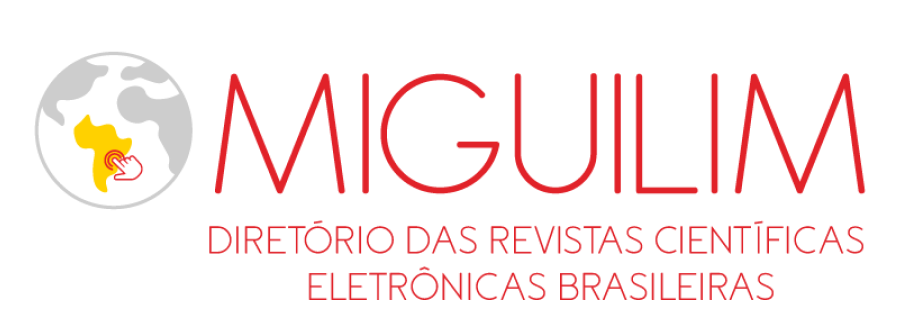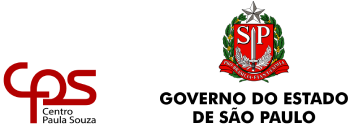The use of educational software in the learning of logic programming for elementary school children
DOI:
https://doi.org/10.5281/zenodo.14997044Keywords:
Logic Programming, Education, Children, TechnologyAbstract
It is evident that with the advancement of technology, the frequency of its use in the most varied environments is increasing. In the educational field, we can see the growth of this scenario of technological integration, including its use aimed at obtaining knowledge through educational games or digital platforms. These two factors, together, result in the increase of initiatives for the learning of Information Technology (IT) and consequently the teaching of algorithms and logic programming, since it is the basis for a lot of knowledge in IT. The presented study focuses on demonstrating how logic programming can be an important learning tool for children through the main educational software and tools for this purpose, starting with a bibliographic research based on researchers in the education and development of children's thinking. In addition, the article approaches proposals for the insertion of Computational Thinking in education, also showing the results of a case study with an experimental class with 17 students from the 4th and 5th year of Elementary School. Through a descriptive analysis of the results obtained, it was possible to analyze the children's understanding of the concepts taught from their point of view, as well as observing the satisfactory performance in unanimity when using tools elucidated in the study, since all of them completed the proposed activities.
Downloads
References
BLOCKLY GAMES. Disponível em: https://blockly.games. Acesso em janeiro de 2022.
BRASIL. Ministério da Educação. Base Nacional Comum Curricular. Brasília, 2018. Disponível em: http://basenacionalcomum.mec.gov.br/. Acesso em setembro de 2021.
CODE.ORG. c2022. Disponível em: https://code.org/. Acesso em janeiro de 2022.
FERRARI, Matheus. Pesquisa revela dados sobre tecnologias nas escolas. Instituto Nacional de Estudos e Pesquisas Educacionais Anísio Teixeira (INEP). 2021. Disponível em: https://www.gov.br/inep/pt-br/assuntos/noticias/censo-escolar/pesquisa-revela-dados-sobre-tecnologias-nas-escolas. Acesso em agosto de 2021.
GIL, Antonio Carlos. Como elaborar projetos de pesquisa. Vol. 4. São Paulo: Atlas, 2002.
GOOGLE. Comemoração de 50 anos de programação para crianças. 2017. Disponível em: https://www.google.com/doodles/celebrating-50-years-of-kids-coding. Acesso em novembro de 2021.
LOGO FOUNDATION. What is Logo? c2014. Disponível em: https://el.media.mit.edu/logo-foundation/what_is_logo/. Acesso em janeiro de 2022.
MARCONI, Marina de Andrade; LAKATOS, Eva Maria. Fundamentos de metodologia
científica. 5 ed. São Paulo: Atlas, 2003.
MIT SCRATCH. Disponível em: https://scratch.mit.edu/. Acesso em novembro de 2021.
MICROSOFT. What is Minecraft: Education Edition? c2021. Disponível em: https://education.minecraft.net/pt-pt/discover/what-is-minecraft. Acesso em janeiro de 2022.
NIC.BR. CETIC.BR. CGI.BR. Painel TIC COVID-19: Pesquisa sobre o uso da Internet no Brasil durante a pandemia do novo coronavírus – 3ª edição: Ensino remoto e teletrabalho. 2020. Disponível em: https://www.cetic.br/pt/publicacao/painel-tic-covid-19-pesquisa-sobre-o-uso-da-internet-no-brasil-durante-a-pandemia-do-novo-coronavirus-3-edicao/. Acesso em agosto de 2021.
OBAMA, Barack H. Computer Science Education Week 2013. The Obama White House. Youtube, 2013. Disponível em: https://www.youtube.com/watch?v=yE6IfCrqg3s. Acesso em agosto de 2021.
PAPERT, Seymour. Mindstorms: children, computers and powerful ideas. Basic Books, Inc., 1980. New York, NY, USA. ISBN 0-465-04627-4.
PIAGET, Jean. Seis Estudos de Psicologia. Tradução de Maria Alice Magalhães D’Amorim e Paulo Sérgio Lima Silva. 24ª. Edição Revista, Rio de Janeiro: Forense Universitária, 1999.
PRAIA GRANDE, Prefeitura Municipal de. Tecnologia na sala de aula eleva a qualidade do ensino em PG. 2020. Disponível em: https://www.praiagrande.sp.gov.br/pgnoticias/noticias/noticia_01.asp?
cod=50806. Acesso em setembro de 2021.
RAABE, André L. A.; BRACKMANN, Christian P.; CAMPOS, Flávio R. Currículo de referência em tecnologia e computação: da educação infantil ao ensino fundamental. São Paulo: CIEB, 2018. E-book em pdf. Disponível em: https://curriculo.cieb.net.br/assets/docs/Curriculo-de-referencia_EI-e-EF_2a-edicao_web.pdf. Acesso em setembro de 2021.
ROBLOX CORPORATION. Roblox Studio. c2022. Disponível em: https://www.roblox.com/create. Acesso em janeiro de 2022.
SÃO PAULO, Governo do Estado de. Governo lança aulas em tempo real por TV aberta e celular a estudantes da rede estadual. São Paulo, 2020. Disponível em: https://www.saopaulo.sp.gov.br/spnoticias/governo-lanca-aulas-em-tempo-real-por-tv-aberta-e-celular-a-estudantes-da-rede-estadual/. Acesso em agosto de 2021.
SCRATCH BRASIL. Jogo Pong. 2014. Disponível em: http://www.scratchbrasil.net.br/index.php/atividades/126-jogo-pong.html. Acesso em novembro de 2021.
Published
How to Cite
Issue
Section
Copyright (c) 2022 Revista Processando o Saber

This work is licensed under a Creative Commons Attribution 4.0 International License.
Os direitos autorais dos artigos publicados pertencem à Revista Processando o Saber e seguem o padrão Creative Commons (CC BY), que permite o remixe, adaptação e criação de obras derivadas do original, mesmo para fins comerciais. As novas obras devem conter menção ao(s) autor(es) nos créditos.
























